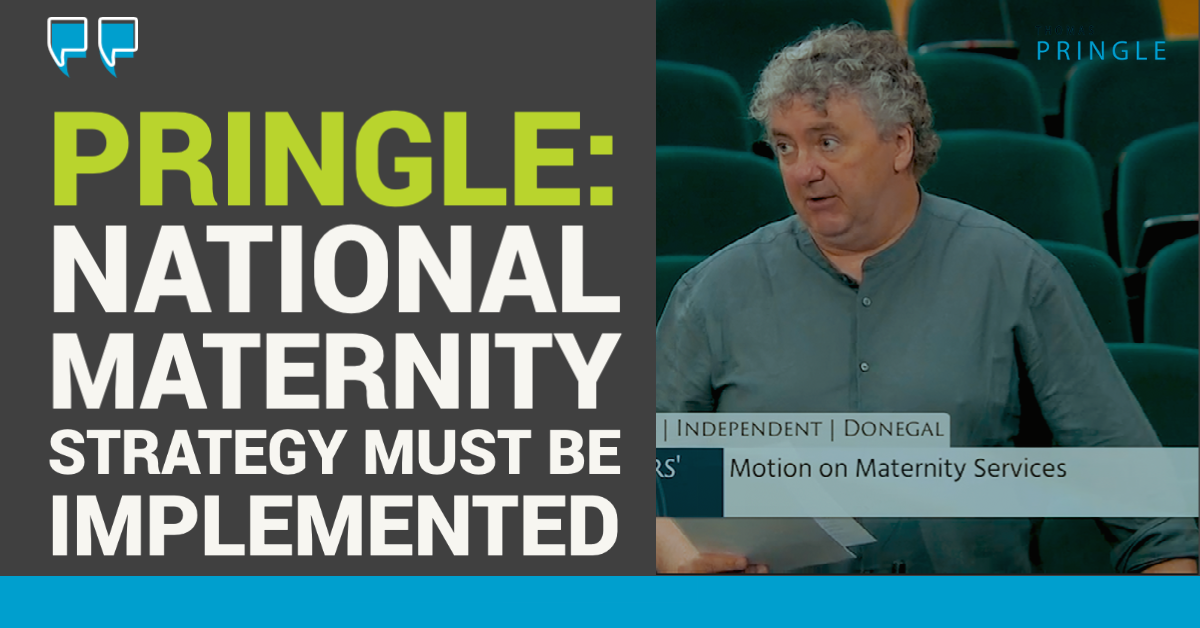- Pringle: We need a policy that recognises the importance of inshore fishing
- Pringle: Disabled people and carers face crisis of State neglect
- Pringle: Failed FF/FG housing policies forcing people to put their lives on hold
- Pringle welcomes Donegal council motion on Occupied Territories Bill: ‘We cannot stand by in the face of genocide’
Pringle: National Maternity Strategy must be implemented
- Updated: 2nd June 2021

Independent TD for Donegal, Thomas Pringle, said Government and the Health Service Executive must be held accountable for commitments made in the National Maternity Strategy.
Deputy Pringle spoke in the Dáil this morning in support of a private member’s motion brought forward by Catherine Connolly, independent TD, that called on Government to urgently implement the national strategy and to ensure that the National Maternity Hospital remains entirely in public ownership. Deputy Pringle said he was happy to put his name to the motion.
Deputy Pringle said: “Our first National Maternity Strategy was published in 2016 and was to run until 2026. There are now five years left in this strategy and it is time for the Government and the HSE to be held accountable for the commitments made.
“Women are consistently being let down by the State. It must be exhausting. Frontline staff in maternity services and midwifery staff are also overworked, undervalued and working in physical environments with infrastructure that is not fit for purpose. I welcome that the HIQA’s report of early 2020 focussed its recommendations on the HSE and Government,” he said.
The deputy pointed to ongoing issues around Covid restrictions and limited birthing partners’ attendance at pre-natal appointments and maternity wards, saying, “I understand that there has to be additional restrictions to ensure that Covid is kept out of hospitals but there are pregnant people receiving devastating news alone and partners missing out on wonderful moments of hearing heartbeats on ultrasounds.”
He called the issue of ownership of the National Maternity Hospital, “another example of Government lip service to issues of public importance.”
Deputy Pringle said: “Only full public ownership and full public governance can guarantee a full service in reproductive health.”
The deputy said: “We talk about our dark history but there are people around us for whom this history is very, very present. There are families trying to be reunited, having had babies forcibly taken from them. There were illegal adoptions and illegal birth registrations and survivors are still not being heard. How can we atone as a country for the State’s part in all of this trauma without acknowledging the need to now separate church and state? How can we keep saying that we have to change our patriarchal system of delivering healthcare when we don’t prioritise women’s health?”
Deputy Pringle concluded: “We all know that if men suffered through women’s health issues, complications and other traumas that the services would be completely different.”



